In Euphoria, HBO’s freewheeling, drug-laced music video mashup of a teen drama, it isn’t too often you see any grown-ups. Whenever adults do wander into frame, they aren’t disciplining their frequently endangered children or providing them with any words of wisdom (save one grown-up, Ali, Rue’s Narcotics Anonymous sponsor). No, in this anonymous Southern California suburb — where a baby eats cigarettes, a 17-year-old girl has sex with men thrice her age, and countless seemingly mundane interactions pulse with the imminent threat of violence — parents aren’t safeguards and moral arbiters; they’re the reason their kids are so fucked up in the first place.
Euphoria is seemingly about addiction. The show’s plucky protagonist with an opiate addiction, Rue (Zendaya, swiftly en route to Emmy #2), had just relapsed before the beginning of this season, and she may well die because she’s using again; the perniciousness of heavy drug use has touched most other characters’ lives in some way or another. But the show is just as much about the inherent traumas of the nuclear family.
Take Cassie, brought to tearful, snotty life by megawatt rising star Sydney Sweeney. This season, she’s started sleeping with the hulking, handsome, terrifying Nate Jacobs (Jacob Elordi), the on-again, off-again boyfriend of her best friend, Maddy (Alexa Demie). Falling hopelessly in love with someone who is, by every indication, a sociopath, and who keeps drifting back to her best friend — someone who, frankly, is just as scary as Nate is — has driven Cassie to ebullition. She wakes up at 4 a.m. for an hourslong beauty routine in an increasingly desperate attempt to get Nate to notice her at school. She gets extremely drunk while wearing a barely there bikini at Maddy’s birthday party and vomits in front of everybody in the hot tub.
This girl is not all right. And thanks to Euphoria’s frequent and overindulgent flashbacks, narrated by Rue, we know exactly why. Her parents fought often throughout her childhood about their respective marital indiscretions and eventually divorced. Cassie’s father, Gus (Nick Blood), grew lax with his visitations before he stopped showing up much at all. After a drunk driving accident, he became addicted to painkillers. Cassie was his devoted nurse, constantly at his bedside and later texting him for updates, until he disappeared again, only to show up shortly before her 15th birthday to purge the house of fine china and anything else he’d be able to pawn for drug money. Then he disappeared for good.
Poor Cassie then embarks on a series of terrible relationships with boys who would coerce her into sending them nudes or making sex tapes. The first time she found out that videos of her own body appeared online without her consent after a breakup, “she had a panic attack and wanted to swallow a whole bottle of Tylenol,” Rue tells us in voiceover. But when Cassie realizes she has no real control over what these boys do or what narratives they tell each other about her being a slut and a whore, she decides to pretend that none of it really matters. Cassie’s resulting failed relationship with McKay (Algee Smith) and her disastrous affair with Nate are, we’re supposed to surmise, clear byproducts of her significant daddy issues.
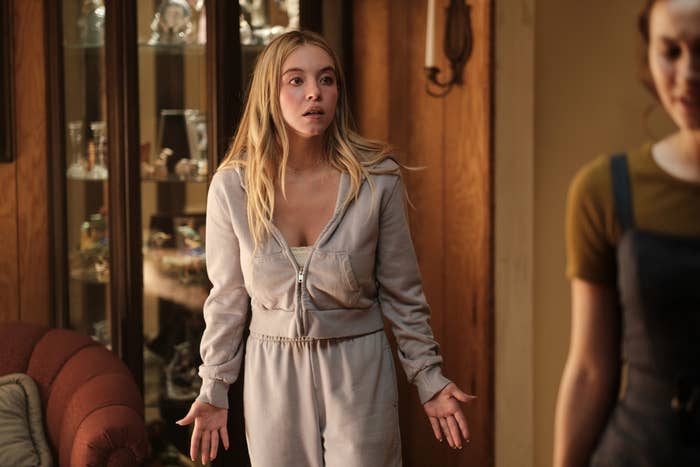
But the character with the biggest daddy issues of all is, of course, Nate himself. His father, Cal (Eric Dane), has seen his storyline expanded this season. We learn that as a popular and athletic teenager, he fell in love with his best friend Derek but was forced to marry Nate’s mother when she got pregnant with their oldest son. Now the big man in town with a real estate business, Cal satisfies his desires covertly, sleeping with young men and trans girls. One of those girls, in Season 1, is Jules (Hunter Schafer), Rue’s best friend and sometimes girlfriend; Cal allegedly didn’t know that Jules was still a teenager at the time. Now, in Season 2, he’s hell-bent on recovering the video evidence he’d evilly recorded of their encounter. In Episode 4, after a drunken visit to the gay bar where he and Derek once kissed, Cal comes home to his wife and two sons and screams at them, proudly, about being a “pervert” and a “faggot,” all with his dick hanging out. (It was a prosthetic.) “Living a double life? Not my biggest regret,” he says, then points at Nate. “You are.” No wonder this kid has issues!
Depictions of dysfunctional families aren’t new, but they have changed quite significantly since the dawn of television. The traditional, idealized, safely stable American family of Leave It to Beaver and Father Knows Best might have dominated TV programming in the 1950s, when dads were all-powerful and moms relegated to the kitchen, problems trivial and easily resolved; a perfect family begets a perfect life. But in the years since, we’ve seen the blended family of The Brady Bunch in the ’60s and ’70s, and less idealized families, like the Bunkers of All in the Family, led by a raging, racist patriarch, and its spinoff, The Jeffersons, the first American television show to center on a Black family. By the ’90s, sitcom families — Malcolm in the Middle, The Fresh Prince of Bel-Air, That ’70s Show, even The Simpsons — were zanier than their predecessors, but, crucially, their dysfunction wasn’t ever bad enough to permanently destroy relationships. These were families that ultimately still loved each other and belonged together.
The aughts ushered us into a new era of the “nontraditional” family on TV, from the first mainstream depiction of gay parenting on Modern Family to the satirical spin on telenovelas that followed an accidentally pregnant Latina twentysomething, Jane the Virgin. There’s arguably more dysfunction in American families on TV this century than ever before — if only because there’s so much television now — and particularly when you count dramas as well as sitcoms (Shameless, Queen Sugar, Six Feet Under, Transparent, The Sopranos).
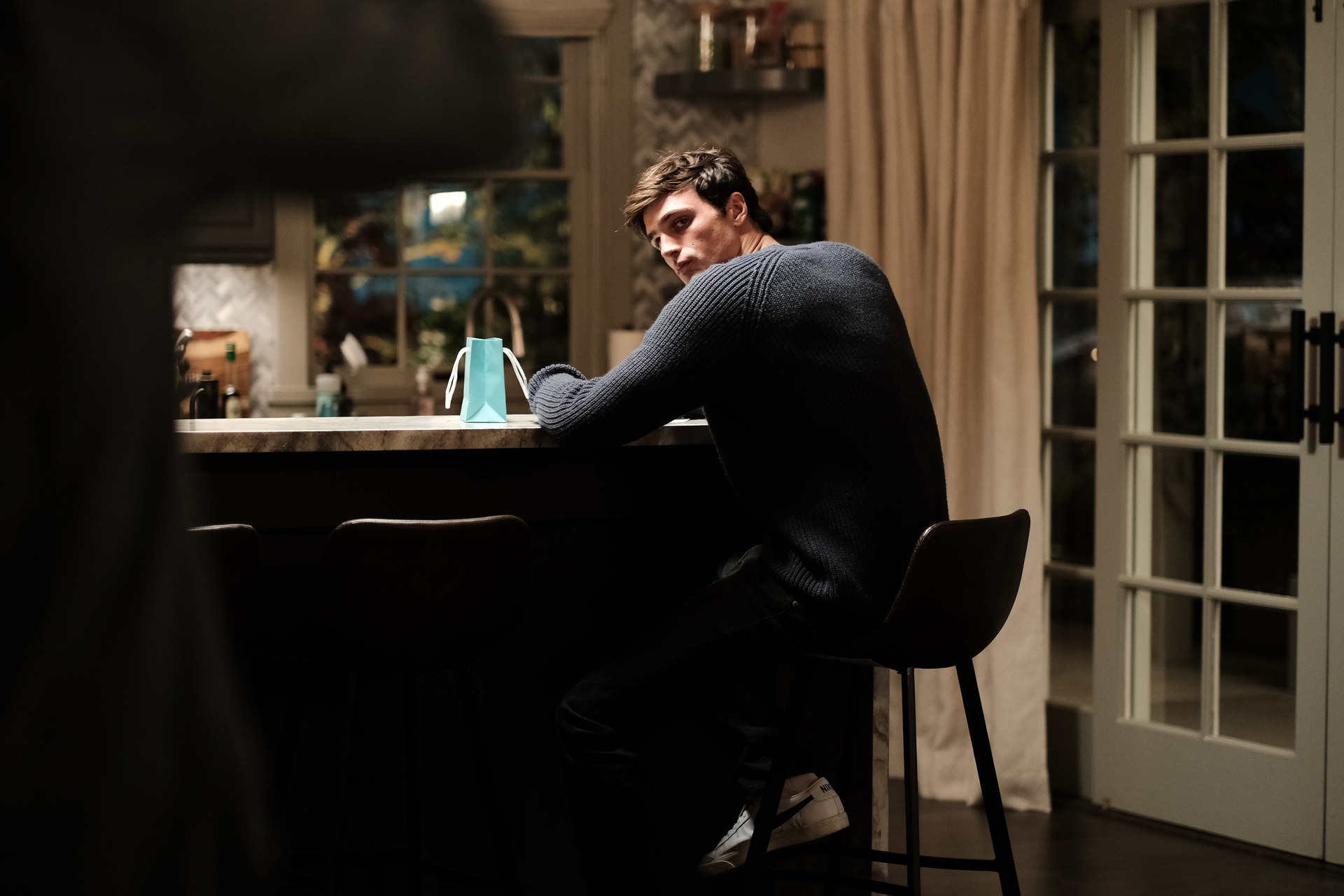
TV is no longer straightforward propaganda for the sanctity of the nuclear family. And thank god for that, because if there’s ever been a time to really, truly reckon with the harm wrought by organizing our society around the married couple and the private household, it is now, two years into a pandemic that has killed nearly 1 million Americans.
A 2021 study published in Frontiers in Public Health found that “the more individualistic (vs. collectivistic) a country was, the more COVID-19 cases and mortalities it had.” The difference in a society that’s more individualistic as opposed to more collectivist “describes the degree to which individuals in a given culture see themselves as independent — vs. interdependent — of the society they live in,” researchers explained, which “dictates how much they care for themselves and their immediate families only, as opposed to [their] entire community.”
If you didn’t already know that the United States has a highly individualistic culture — home, as we are, to bootstrap liberalism, anti-vaxxers, and private owners of military-grade weapons — you could probably glean as much from our COVID death numbers, the highest in the world. And as the Frontiers in Public Health researchers point out, individualism applies not only to individual people but to their immediate families.
For decades now, powerful people have weaponized the supposed purity of the (white, straight, traditional) family to either directly discriminate against racial minorities and LGBTQ people or deny rights to the public at large. “Freedom” for individual families — to inherit wealth, share health insurance, get tax breaks, and be deemed legitimate by institutions and the state — can come at a cost to the greater good.
If there’s ever been a time to truly reckon with the harm wrought by organizing our society around the married couple and the private household, it is now, two years into a pandemic that has killed nearly 1 million Americans.
These past couple of years, every debate about COVID mandates in schools, as well as about what those schools should and should not teach children about the US’s racist history and the existence of LGBTQ people, can be boiled down, on the conservative side, to an argument about the inviolability of the private family and parents’ rights to control everything about their children’s lives (and, by extension, maintain white and cis supremacy). Conservatives from the very top have successfully activated thousands of white parents’ anxieties about the liberation of trans people and people of color to keep their schools and towns segregated, their students’ syllabi free of Black voices, and trans kids out of their children’s sports teams.
Teachers can’t tell my kid about racism and risk hurting their feelings — I’m the parent. Administrators can’t tell my kid to wear a mask — I’m the parent. You can’t make my kid stand next to a trans child in the bathroom — I’m the parent. This idea, that parents should have sovereign child-rearing powers, serves as a chillingly effective cudgel against not only the rights of teachers to feel safe at their workplaces but the public education system at large. The pandemic has revealed how many Americans don’t view educators as experts and collaborators in raising their kids but as grossly underpaid babysitters who should be censored and surveilled by the private sphere. Meanwhile, care workers whose labor is essential for public health and well-being aren’t getting the financial or emotional support they need to maintain our ever-imperiled social safety net.
Much of the same goes for mothers. The pandemic has been excruciating for American parents, even for those with families who have benefited the most from a society that rewards intergenerational wealth hoarding. Many of them feel as though their government has simply given up on them. The Child Tax Credit program that prevented millions of children from going without food throughout the pandemic has just expired, meaning an alarming jump in child hunger and poverty is imminent. Even before the pandemic, the US has been infamously inhospitable to mothers and their children, with no federal maternity leave mandate or guaranteed universal childcare. Unlike in other cultures and time periods throughout history, we expect mothers to shoulder the burden of parenthood almost entirely on their own, without fault or complaint.
Families are supposed to love and support each other no matter what. But in melodrama, as in life, your family can and will hurt you, or at the very least let you down — more effectively than anyone else you’ve ever known. And that pain, some of the most excruciating there is to be felt in this life, makes for extremely juicy television.
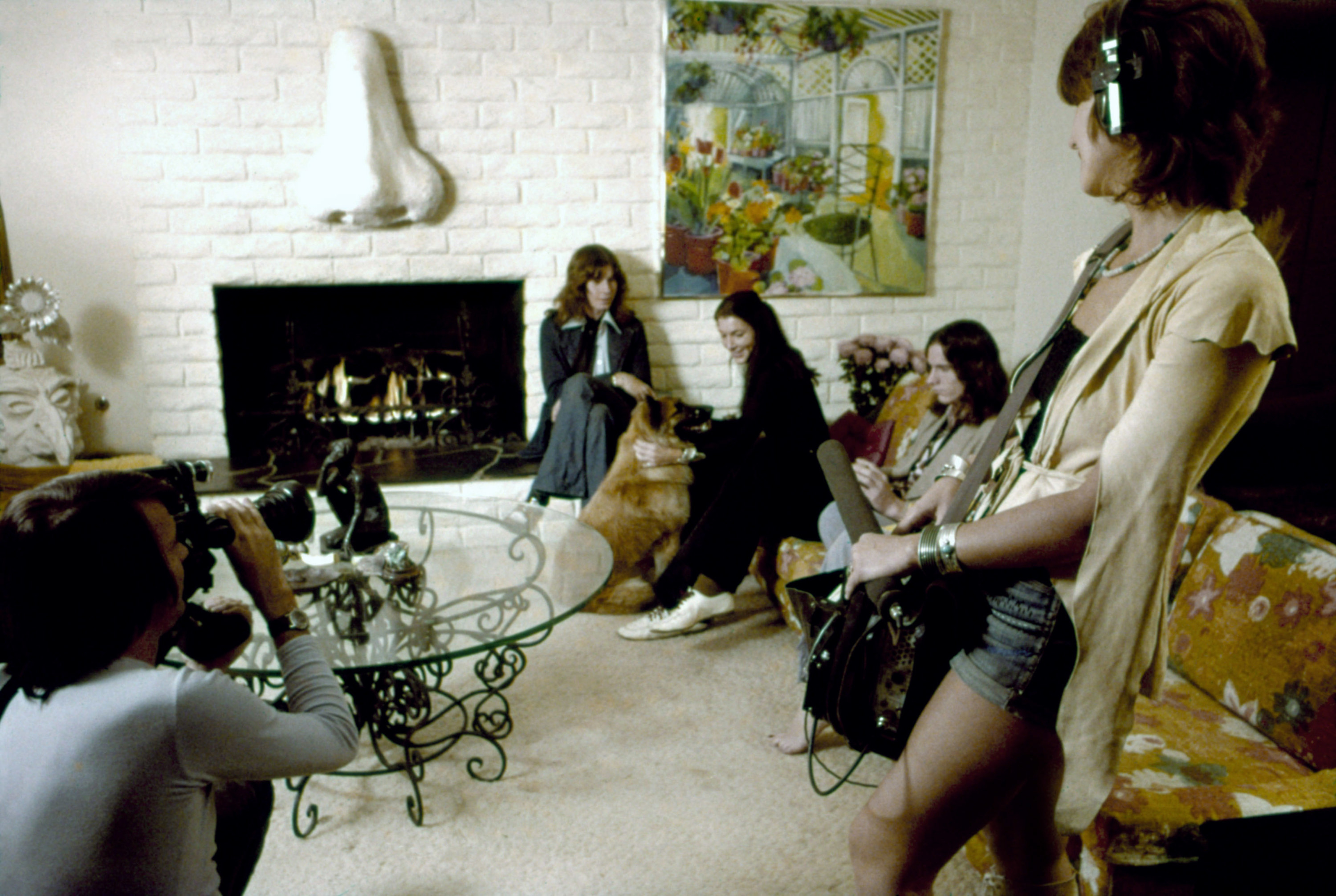
If there’s a genre that has never shied away from revealing the horrors that can transpire behind closed suburban doors, it would be reality television. In its earliest iteration, the 1973 documentary series An American Family, millions of viewers were given unprecedented access to the daily lives of the Louds, an upper-middle-class bunch living in Santa Barbara, California. The series inadvertently chronicled the dissolution of the Louds’ marriage over seven months of shooting — Pat Loud asks her husband Bill for divorce on camera — and Pat’s discovery that her son Lance is gay. The series courted a whirlwind of controversies, with viewers wondering whether the show revealed the family’s truest essence or if its subjects were simply acting out for the camera.
Fifty years later, The Real Housewives franchise has picked up An American Family’s torch; there is no other current reality show that’s quite so masterful at laying bare the traumas and tribulations of the American family. You might think Housewives is about women pretending to be richer than they actually are while getting into the pettiest fights imaginable to humankind, and, hey, you would be right. But these shows are also fundamentally about families, particularly families at their worst: the ways people use their spouses and children as status symbols, the traumas of divorce and downward mobility. You’ll watch women have to decide whether to reconcile with parents who failed or abandoned them, women dealing with off-the-rails teenagers (who blame their mothers for being so off the rails to begin with), women who endure sexual assault and abuse and even a husband’s suicide, women who themselves are nasty and abusive to people of all genders. Their fucked-up family dynamics are our own, magnified by the fun house mirror of late capitalism; the wives bask in the privileges and pleasures of wealth when the going’s good, and suffer devastating results when they’re on the outs: debts, jail, loss of money or love or power.
Twelve seasons in, The Real Housewives of New Jersey remains a standout of the franchise because the themes of familial alienation are front and center. Two of its biggest stars are sisters-in-law: original cast member Teresa Giudice, who eventually served 11 months of a 15-year sentence for fraud and who recently divorced Joe Giudice, the husband allegedly responsible for their legal troubles, and Melissa Gorga, a singer and fashion entrepreneur who’s married to Teresa’s charming though old-school meathead of a brother, Joe Gorga.
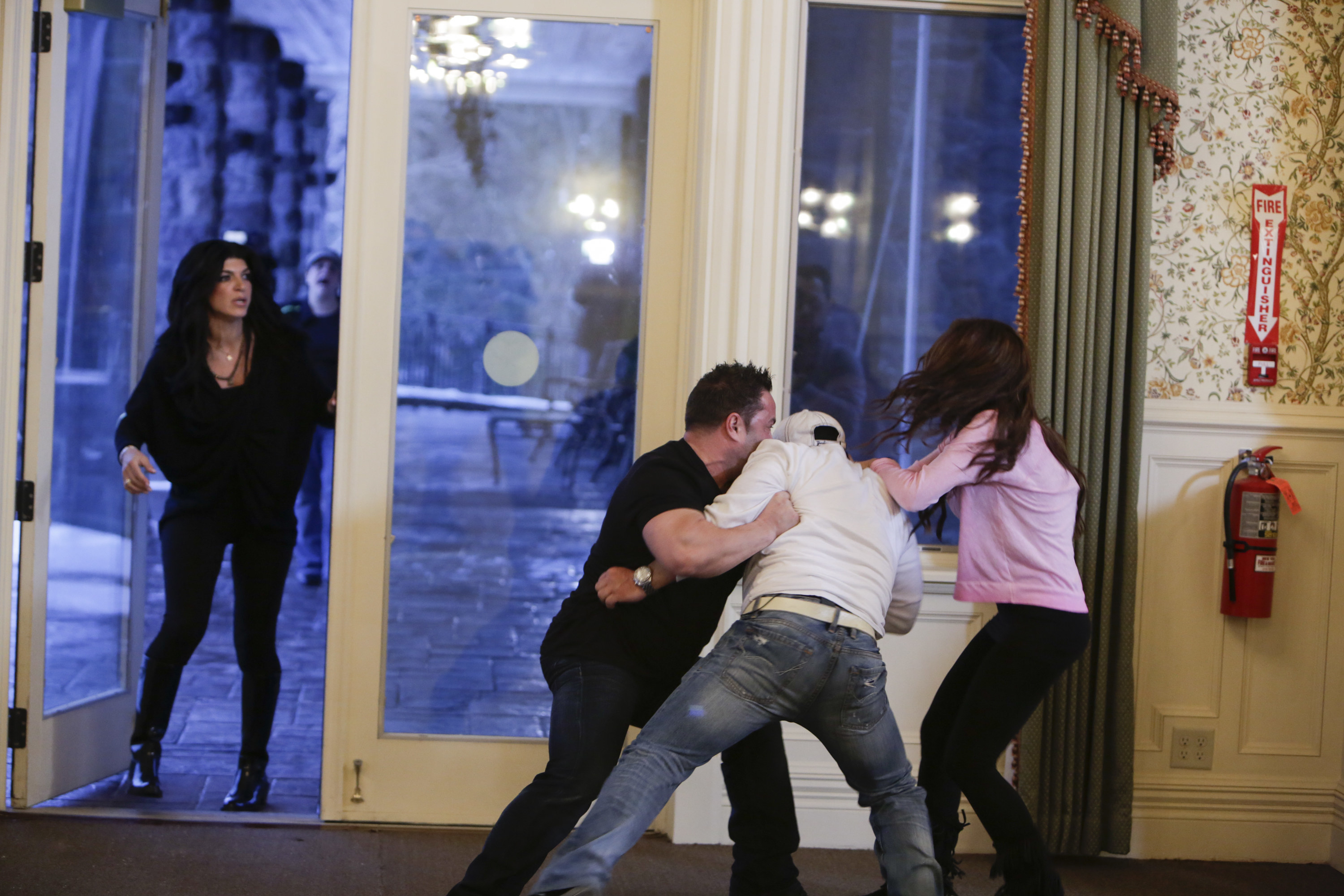
The battles of the Gorgas and the Giudices throughout 10-plus tumultuous years are the stuff of legend. In one of the best TV premieres of all time, the opening of RHONJ Season 3, new cast member Melissa throws an elaborate christening for her baby Joey, which somehow ends in a fistfight between both Joes while their children stand around in their fancy clothes and weep. Flashbacks to the previous week reveal why these two grown men are brawling. We learn their feud has been brewing over time, throughout a series of perceived slights and humiliations — Melissa gave Teresa some Christmas cookies that she threw away in front of her, Joe Gorga thinks Joe Giudice is interfering with his relationship with his and Teresa’s dad — and it boils over at the christening because at least one Joe is extremely drunk. Gorga bangs his fists on the table and calls his sister “garbage,” causing Giudice to lunge at him. The episode ends with Gorga leaning over his frail, elderly patriarch, who is seemingly displeased about the violent outburst from an adult son increasingly desperate for his attention and love. Head bowed in anguish, Gorga wails in both English and Italian: “You’re my father! You’re my father!”
I mean, this is cinema. It’s The Sopranos, it’s The Godfather: the extraordinary pressure of cultural tradition and gender roles, the tension between one’s chosen and biological families, the making and unmaking of the American man (also, the question of when and how Italians became white). The threat of parental estrangement also hangs heavily above all these stories, infusing them with fun and/or tragic sexual dynamics of the mommy and daddy varieties. It follows that RHONJ is at its best during weddings, funerals, baptisms — the most dramatic, revealing, and high-stakes scenes. They’re historical and cultural events that signify the importance and continuance of a society built on the nuclear family, to which we tie individuals’ social status, their wealth, or lack of it.
You realize when bingeing hundreds of episodes of Housewives over the course of a pandemic how many iconic memes come from the show and, weirdly, how tragic some of their sources are. I remember hearing the song Gia, Teresa’s daughter, sings in RHONJ Season 3 on TikTok long before I knew it was a little girl’s earnest, tearful, heartbroken attempt to reunite her feuding mother and uncle. The episode brought me right back to my own childhood, when I’d be separated from my cousins during the times our parents were fighting.
With RHONJ, as with all the other Housewives, I’m on estrangement watch. (Estrangement from family members flies in the face of lessons we’ve learned from decades of wholesome 20th-century American sitcoms. Your family might drive you up the wall, but they love you and you love them. You fight, but you make up at the end of the day.) The Giudices and the Gorgas, as well as some of their other family members, go through periods where certain factions ice each other out for months on end. The sisters-in-law have been getting along for a while now — it’s been a few years since Melissa dropped to her knees, grabbed Teresa’s hands, and screamed, “STOP HURTING US!” — but when we meet up with the guys for Season 12, which premiered earlier this month, the families haven’t been speaking to each other for half a year. Joe Gorga, Melissa’s husband, apparently said some nasty things about Teresa’s ex (his nieces’ dad), Joe Giudice, who was recently deported to his native Italy, where he hasn’t lived since he was a baby. Gia, now in her early 20s, wants her uncle to apologize. Gorga feels like he’s always made out to be the bad guy when Giudice, whose financial problems landed his sister in jail, is the real bad guy: “He put my mother in a fucking grave,” he says at the end of the last season.
The Gorgas and the Giudices have always bounced back before, but maybe they won’t recover this time. How long, for the sake of family, are you supposed to make yourself miserable?
You might ask that question of the Roys. The fictional siblings at the heart of HBO’s Succession, which finished its astonishing third season at the end of 2021, are jockeying for power at the Fox-like media conglomerate run by their father, Logan (Brian Cox). But what they’re all really looking for, of course, is love: a kiss from Daddy, a sense of belonging in the world. As much as it earns the increasingly nebulous title of prestige television, Succession is at its heart a family soap opera. Vox critic Emily VanDerWerff has argued the show isn’t really about wealth, but abuse. When, at the end of Season 3, favorite son–turned–disgraced traitor Kendall (Jeremy Strong) convinces his sister Shiv (Sarah Snook) and brother Roman (Kieran Culkin) to turn against their father in an attempt to take him down for good, it’s breathtaking less for the (significant) political implications of Logan’s potential downfall than for how hard it is to imagine all of them standing up to their abuser. Earlier in the episode, at their mother’s wedding in the Italian countryside, Kendall breaks down and admits that he accidentally killed a young man at a different family celebration. “I’m not feeling very close to my kids right now,” he says. And at another point, choking down a sob, he says, “I’m all apart.”
Jeremy Strong was the recent subject of an incredible New Yorker profile, in which he revealed himself to be a working-class striver who takes himself and his craft extremely seriously. Director Adam McKay told the magazine, “He’s not playing [Kendall] like a comedy. He’s playing it like he’s Hamlet.”
“To me, the stakes are life and death,” Strong says about playing Kendall. “I take him as seriously as I take my own life.” The actor was mocked online (lovingly so in many instances, though the celebs certainly did not see it that way) for a couple of days after the article was published in December for his self-seriousness and for failing to see what’s funny about the satire he stars in. I’m not sure I’d want to hang out with the guy, but Strong is right! Succession’s themes, like any good, soapy melodrama, truly are the stuff of life, of Shakespeare: mother and daughter, father and son, loyalty and betrayal, death and rebirth.
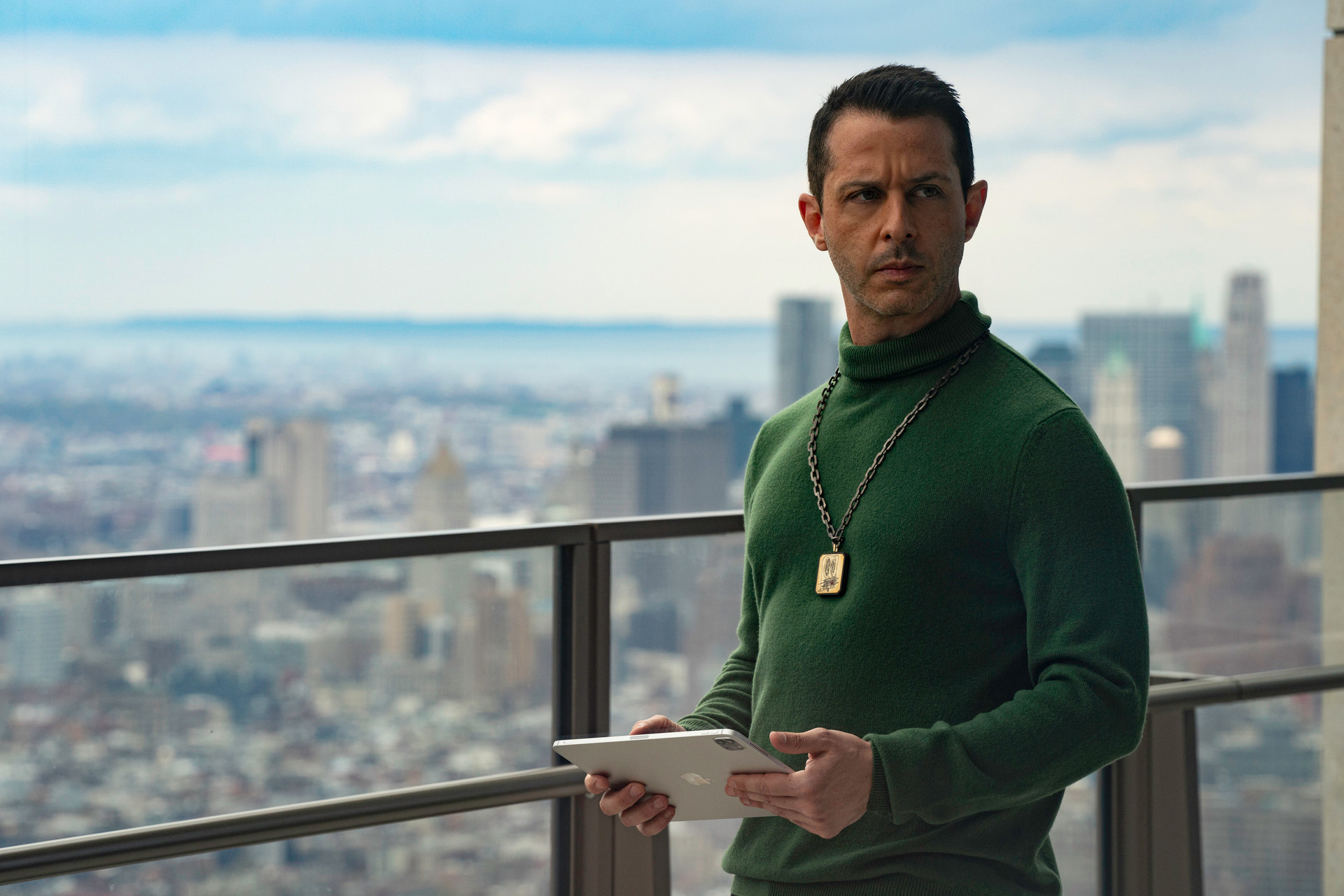
Every day of our lives, we face subtle and not-so-subtle pressures to organize ourselves into private, isolated, homogeneous bubbles — to couple up and procreate — while expecting little in the way of community care.
“I think that part of what a culture of domination has done is raise that romantic relationship up as the single most important bond, when of course the single most important bond is that of community,” bell hooks once said. One of the most devastating effects of this “culture of domination” has been the mainstream LGBTQ rights movement’s focus on giving couples the right to marry — and thus the rights to hospital visitation, inheritance, and health insurance — rather than fighting for every queer person to have access to food and housing regardless of their marital status or what family they come from. While it’s a good thing that our culture has come to accept and even celebrate nontraditional families, including queer ones, it’s nonetheless high time we stop promoting the idea that having any kind of “family” at all as the only way to live a good, meaningful life.
Our couple- and family-centric culture is actively hostile toward anyone who doesn’t fit the prescribed mold. As my former BuzzFeed News colleague Anne Helen Petersen wrote last year for Vox, “Single people should, in theory, be the purest embodiment of American values of self-sufficiency and individualism. That they’re not speaks to the fact that we don’t venerate the individual — we venerate the individual family.” Actual solo-living individuals, meanwhile, face higher costs of living and a loneliness crisis.
If someone chooses not to get married or to have children, they’re missing out on financial and cultural benefits reserved only for those who make those decisions. They’re “selfish” for focusing on themself or on their community at the expense of a hypothetical family. It’s disturbing that even now, in our age of climate change and global unrest, supposed thought leaders are still pushing for the private family as our savior. Pope Francis, noted non-kid-haver, recently said that it’s selfish to choose pets over children. Elon Musk has implied that if people do not have more babies, civilization as we know it will crumble. As if civilization as we know it isn’t already in its flop era.
But bad as things are, they can always get worse. And likely will. Some of the most popular television of recent years, much of it adapted from books, has imagined what’s to become of us humans, and seemingly none of it is good: from the misogynist hellscape of The Handmaid’s Tale to the zombie wasteland of The Walking Dead to the barely hyperbolized capitalist horror of Squid Game. But if we are to survive the apocalypse, and perhaps have higher aspirations on Maslow’s hierarchy of needs than the basement floor, last year’s Station Eleven — a standout of the genre — suggests it will not be alone but with a blended community committed to more than just getting by, because mere “survival is insufficient.”
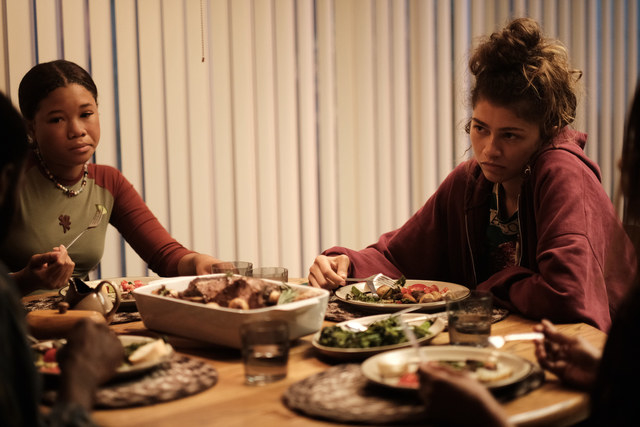
The latest episode of Euphoria ends with Rue’s mother, Leslie (Nika King), begging someone over the phone to find room for Rue at a rehabilitation center while her daughter lays in bed with her little sister Gia (Storm Reid), who’s been caught time and time again in the crosshairs of her sister’s violent outbursts. Leslie tells the operator that Rue is going to kill herself if they don’t admit her. But programs devoted to treating those with an addiction are woefully underfunded throughout the country, or mind-bogglingly expensive, or both. Like so many other American mothers, Leslie is left to deal with her daughters’ traumas alone.
Leaving public health and safety issues to the private family has cost many millions of Americans their health or their lives during the pandemic, and it’s led to half a million dead from the opioid crisis. Countless more are struggling and suffering in silence. Thousands of real-life Rues around the country might not even have the support of their families while facing an addiction. Mothers and families, even the best and most loving ones, are not strong enough on their own to take care of us all the way we need and deserve.
I wonder what our society might look like if we saw all the familial humiliation and trauma playing out across our television screens — and perhaps in our own homes — and decided that enough is enough. There are more equitable, expansive, loving ways to live beyond the confines of the nuclear family. And we should probably come around to the idea sooner rather than later, because trying to survive a pandemic, the climate crisis, or any other global catastrophe from the privacy of a single family will ultimately fail. Because we'll all have to rely on each other. ●
